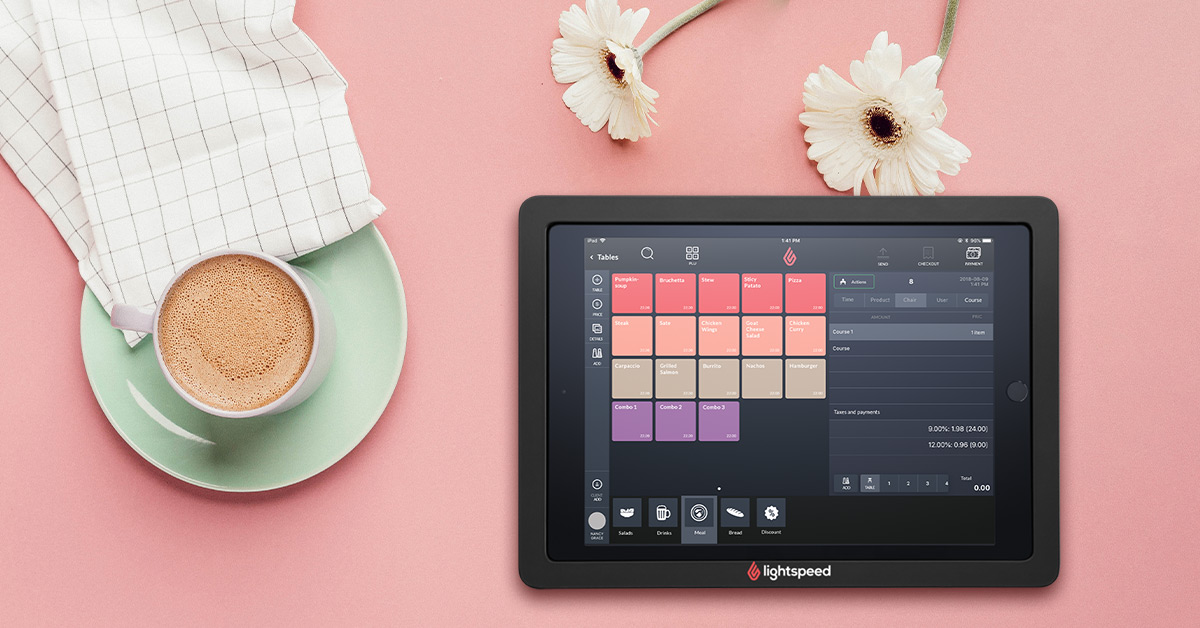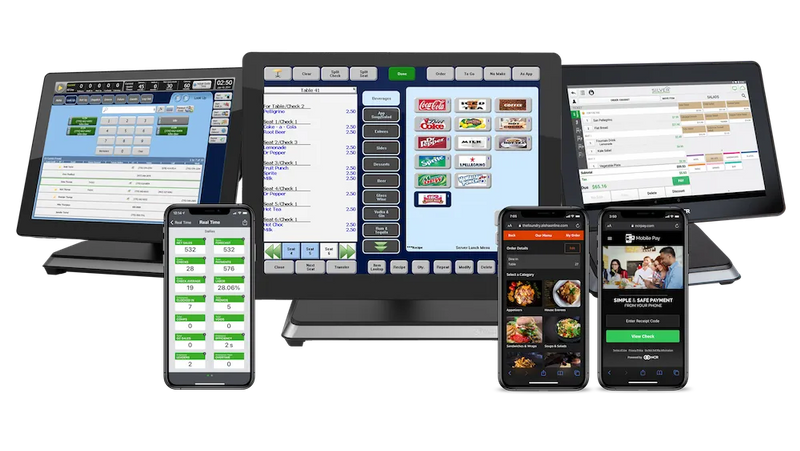Understanding the Importance of POS Software in Modern Retail Workflow
In today's retail landscape, the role of POS software has ended up being significantly significant. These systems have changed from fundamental cash signs up to diverse tools that enhance numerous elements of procedures. They not just simplify transactions yet likewise provide understandings that can form organization approaches. Comprehending exactly how these systems effect client experience and inventory management is essential for any type of merchant seeking to remain competitive. The effects of these developments warrant further expedition.
The Evolution of POS Software: From Deal Processing to Comprehensive Solutions

Enhancing Client Experience Through Advanced POS Features

Enhancing Stock Monitoring With Integrated POS Systems
Integrated POS systems play an essential duty in improving inventory management by automating processes that typically needed substantial hand-operated initiative. These systems allow merchants to track supply degrees in genuine time, getting rid of inconsistencies that commonly emerge from manual stock matters. With attributes such as barcode scanning and automated stock replenishment informs, services can preserve optimal stock levels without overstocking or stockouts.Furthermore, incorporated POS systems assist in precise forecasting by assessing historic sales information, permitting merchants to make enlightened buying choices. This predictive capacity helps companies adjust to transforming consumer needs and seasonal patterns more effectively.Additionally, the centralization of supply information across numerous sales channels enhances exposure, allowing retailers to handle their stock a lot more efficiently. Ultimately, the combination of POS systems right into stock administration simplifies operations, lowers human error, and adds to boosted productivity.
Real-Time Sales Tracking and Reporting for Informed Decision-Making

Accurate inventory monitoring prepares for efficient sales monitoring and reporting. Real-time sales tracking makes it possible for merchants to keep an eye on sales efficiency as it occurs, supplying prompt understandings into consumer buying patterns and fads. This ability enables organizations to react quickly to changes sought after, enhancing stock degrees and decreasing overstock or stockouts.Moreover, incorporated POS systems facilitate the generation of thorough records, highlighting crucial metrics such as sales by classification, period, and individual items. Such coverage abilities empower retailers to make data-driven decisions, identifying effective methods and locations needing renovation.
The Duty of POS Software in Customer Connection Monitoring
POS software plays a crucial function in enhancing consumer relationship monitoring by making it possible for stores to apply individualized marketing approaches. By analyzing customer information, companies can customize promotions and interactions to satisfy private choices. Additionally, these systems facilitate the advancement of improved loyalty programs that motivate repeat business and enhance consumer interaction.
Personalized Advertising Approaches
As sellers significantly seek to improve consumer loyalty and interaction, individualized marketing methods have actually become an essential element of reliable consumer relationship management. POS software plays a vital function in this procedure by accumulating and analyzing client data, making it possible for merchants to tailor advertising initiatives to specific choices and shopping habits. By leveraging understandings from purchase backgrounds, merchants can develop targeted promos and individualized communications that reverberate with customers, promoting a deeper link. Furthermore, the combination of POS software with customer partnership administration systems allows for seamless monitoring of client interactions, making certain that marketing approaches remain pertinent and prompt (Restaurant POS Software). This data-driven technique not just enhances client contentment however likewise drives sales and urges repeat company, solidifying the seller's market setting
Enhanced Loyalty Programs
Sellers are increasingly recognizing the value of commitment programs in fostering long-lasting customer partnerships and enhancing overall engagement. POS software plays a vital duty in the advancement and management of these programs, allowing retailers to track client purchases, choices, and habits efficiently. By leveraging data analytics, organizations can produce individualized benefits and incentives that reverberate with individual clients, therefore enhancing involvement in loyalty programs. Additionally, POS systems make it possible for seamless integration with mobile apps and electronic platforms, assisting in very easy accessibility to rewards and promos. This not just boosts consumer fulfillment however also drives repeat business. Inevitably, POS software encourages stores to grow much deeper connections with their clientele, changing occasional buyers right into faithful customers through targeted and purposeful engagement methods.
Incorporating POS Systems With E-Commerce Platforms for Omnichannel Success
To accomplish true omnichannel success, seamless assimilation between point-of-sale (POS) systems and e-commerce systems is crucial. This integration enables merchants to link their inventory administration, guaranteeing that product accessibility is properly mirrored across both online and physical stores. Clients gain from a natural buying experience, where they can conveniently change in between networks without official website encountering discrepancies.Furthermore, integrated systems facilitate real-time information sharing, allowing companies to evaluate customer actions and preferences a lot more efficiently. This data-driven technique enables merchants to tailor marketing approaches and optimize stock levels, inevitably boosting consumer contentment and driving sales.Additionally, the capacity to procedure transactions across systems streamlines operations, decreasing the threat of mistakes and enhancing overall efficiency. As stores significantly embrace omnichannel approaches, the assimilation of POS systems with ecommerce platforms continues to be a critical aspect in attaining lasting growth and keeping competitive benefit in the dynamic retail landscape.
Future Fads in POS Innovation and Their Effect On Retail Operations
As retail operations evolve, future trends in POS modern technology are set to improve the have a peek at this website landscape significantly. The surge of cloud-based services, developments in mobile POS systems, and the advantages of AI combination are amongst the essential growths anticipated to boost effectiveness and consumer experience. These developments assure to streamline processes and cultivate a more vibrant retail environment.
Cloud-Based Solutions Increase
With the raising reliance on modern technology, cloud-based POS services are changing retail procedures by providing boosted flexibility and scalability. These systems allow stores to access real-time data from anywhere, promoting better decision-making and client service. By leveraging cloud infrastructure, organizations can reduce in advance prices related to software and hardware installments while ensuring seamless updates and maintenance. In addition, cloud-based services sustain multi-location monitoring, permitting stores to integrate inventory and sales across various outlets effortlessly. This adaptability is necessary in today's busy market, where customer choices change swiftly. As even more merchants embrace these options, they can anticipate enhanced operational effectiveness and a more receptive technique to market needs, ultimately boosting consumer contentment and commitment.
Mobile POS Innovations
The evolution of retail technology remains to form operations, especially with the surge of mobile POS technologies. These systems make it possible for stores to refine deals anywhere within the store, enhancing customer engagement and improving checkout procedures. Mobile POS options improve supply monitoring by permitting instantaneous accessibility to stock levels, assisting personnel aid consumers a lot more efficiently. Additionally, they promote tailored shopping experiences through incorporated client information and loyalty programs. As mobile devices come to be progressively sophisticated, merchants are adopting attributes such as contactless payments and digital invoices, furthermore maximizing the purchasing trip. The shift in the direction of mobile POS not just increases operational effectiveness but additionally lines up with the expanding consumer preference for ease, making sure that stores stay affordable in a swiftly progressing market.
AI Integration Benefits
AI integration represents a transformative jump in POS technology, providing merchants a myriad of advantages that improve functional efficiency and client experience. By leveraging equipment knowing formulas, retailers can examine acquiring patterns and optimize inventory management, minimizing waste and stockouts. Furthermore, AI-powered analytics provide customized advertising referrals, making it possible for targeted promos that increase client involvement and commitment. Chatbots and digital aides enhance consumer solution, enabling for quicker resolution of queries and improving the general buying experience. Predictive analytics can also forecast need trends, enabling smarter staffing and source allotment. Ultimately, the integration of AI in POS systems encourages sellers to make data-driven decisions, fostering an one-upmanship in an ever-evolving retail landscape.
Regularly Asked Inquiries
What Are the Expenses Connected With Executing POS Software?
The costs Learn More connected with executing POS software can include software licensing fees, equipment expenses, installment fees, training costs, and recurring upkeep. Each element contributes to the general investment essential for a successful implementation.
Just How Can Small Retailers Gain From POS Systems?
Little merchants can take advantage of POS systems with improved deal performance, streamlined supply management, and enhanced client insights. These systems make it possible for better decision-making, eventually bring about increased sales and customer satisfaction in affordable markets.
What Equipment Is Required for a POS System?
A common POS system needs essential equipment elements, including a touchscreen screen, cash money drawer, barcode scanner, receipt printer, and settlement terminal. These elements interact to help with efficient transaction handling and supply monitoring for merchants.

Can POS Software Be Customized for Particular Retail Demands?
POS software can undoubtedly be personalized to fulfill particular retail demands. Restaurant POS Software. This flexibility permits services to customize attributes, user interfaces, and reporting devices, improving functional efficiency and supplying a more tailored experience for both staff and clients
How Safe Is Customer Data in POS Systems?
The protection of customer information in POS systems varies extensively. Many systems carry out encryption, protected accessibility controls, and normal updates, however susceptabilities can still exist, necessitating ongoing caution and proactive measures from stores to protect sensitive info.